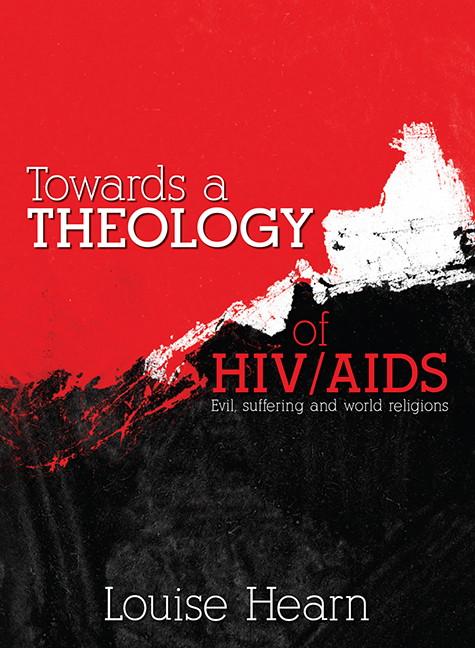Book contents
- Frontmatter
- Contents
- Foreword
- Chapter 1 Introduction
- Chapter 2 Evil and suffering
- Chapter 3 Inadequacy of theodicy
- Chapter 4 Understanding the interconnectedness of HIV/AIDS
- Chapter 5 Alleviating suffering due to AIDS
- Chapter 6 Towards a Theology of HIV/AIDS
- Appendix 1 Models for the interaction between text and reader
- Bibliography
- Index
Chapter 5 - Alleviating suffering due to AIDS
Published online by Cambridge University Press: 18 February 2020
- Frontmatter
- Contents
- Foreword
- Chapter 1 Introduction
- Chapter 2 Evil and suffering
- Chapter 3 Inadequacy of theodicy
- Chapter 4 Understanding the interconnectedness of HIV/AIDS
- Chapter 5 Alleviating suffering due to AIDS
- Chapter 6 Towards a Theology of HIV/AIDS
- Appendix 1 Models for the interaction between text and reader
- Bibliography
- Index
Summary
In 2004 the BBC carried a page on its website that started with:
Do antiretrovirals make a difference? Aids kills nearly 6,000 people each day in Africa – more than wars, famines and floods. There is no cure yet for the disease, even though a series of drugs have been developed which significantly prolong the lives of people who are HIV-positive.
Simple facts underline the severity of the problem, for example the lack of a cure for HIV infection or AIDS as a physiological dysfunction and also the significant impact of the many disasters and atrocities that challenge the African continent which complicate the care of those who are HIV positive or have developed AIDS.
As HIV infection cannot currently be treated by the elimination of the virus in the infected human being and even the best antiretroviral drugs only prolong life, HIV positive status brings with it, for the infected human being, a new interrelationship with death and dying. In this situation faith-centred responses from the various sensemaking orientations are considered as part of developing a wholesome response to the new perspective within the life of the infected individual.
The HIV/AIDS problem causes individual human beings, families, communities, the African continent and the world to suffer and experience the consequences. HIV/AIDS is a multifunctional problem and an interdisciplinary approach is essential as it affects the social, physical, spiritual, and economic wellbeing of all. The overlapping elements of the core areas of all religions of bringing their adherents to a meaningful end-state expectation is identified as central drive to strive towards a cooperative and coordinative approach in the alleviation of suffering through HIV/AIDS. The way in which HIV/AIDS effected and affected people's experience the mystery of the connectedness and difference of God, their own humanity and the physical-organic environment surrounding them has an immense impact on the way they deal with their illness, treatment or if the illness has progressed to the last stages, how they approach their oncoming death.
In the pastoral ambience, when dealing with HIV/AIDS, inward focused viewpoints are not reasonable as this disease is a major calamity which affects human beings on the physical, psychological as well as the social level and human beings are aware that no cure for the problem currently exists and death is the only end.
- Type
- Chapter
- Information
- Towards A Theology of HIV/AIDSEvil, suffering and world religions, pp. 94 - 110Publisher: University of South AfricaPrint publication year: 2013



